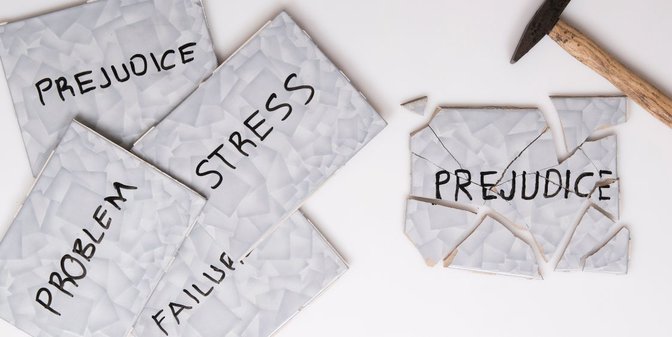From Trauma to Love
Traumatic events can change the way we think and act for a loooong time after they happen.
SOCIAL DYNAMICS

Prince Harry’s recent interviews about his struggles with trauma have made it widely clear that going through tough times can totally change the way our brains work. One thing he revealed was the way he’d blocked out early memories of his mother.
This process is our brain’s way of protecting us from overwhelming emotions. But unfortunately, it can also cause issues with memory and emotional regulation down the line.
But how do these experiences affect our relationships?
The effects of this process aren’t black and white. On the one hand, it can bring you closer to your partner and make you more understanding of each other. On the other hand, it can make you suspicious and distant.
But the good news is that with the right support and resources, it’s possible to work through the effects of trauma.
What actually happens in our brains when we experience trauma?
Put it simply, different parts of the brain are affected in different ways.
Studies showed that the hippocampus, the part of the brain which helps us form memories, was shrunken in depressed women who had experienced trauma in childhood. And that could explain the significant decline in some people's memory.
But the hippocampus also plays a big role in regulating our emotions. And dealing with them can get more complicated when trauma also affects the amygdala, the part of our brain responsible for processing fear.
When the amygdala is impacted, dealing with anxiety and fear triggers becomes even harder. It’s like trying to swim upstream, an uphill battle that can leave you feeling overwhelmed and exhausted.
But don’t despair!
‘‘Therapy and support from others can help reduce the effects of trauma on the brain.’’
And there are techniques that can help you manage your emotions and reduce anxiety, so you can regain control over your life.

So, what can you do to help each other out? Here are some tips:
Talk about it, don’t be shy!
It's a tough subject, but your partner is someone you can trust. Discussing your experiences and trauma with your partner can bring you closer and strengthen your bond, whether you're the one with trauma or the one supporting your partner through their journey. It allows you to support and understand each other on a deeper level.
Be patient and understanding
Healing from emotional trauma is no walk in the park; it takes time and patience. If your partner is the one that has been through a traumatic experience, give them some space to process things.
It’s understandable to want to fix things and try to make your partner feel better, but sometimes, the best thing you can do is to simply give them the time they need.
So don’t take it personally if they need some space; it’s not a reflection of your relationship. It’s actually a necessary step towards healing.
Spend quality time together
Doing fun things you both enjoy, like taking a walk or going out for the night, can help you reconnect.
When you’re walking, you’re not just getting some exercise, you’re also spending quality time together, and that can help you remember all the good times you share. And a night out on the town means you can let loose and forget about your worries for a little while.
Be present
Just be there for them. Help them with their day-to-day tasks. Simple things like grocery shopping, cooking, or doing the laundry can be daunting tasks when someone is dealing with emotional baggage.
Listen to them without judgment. Just let them know that you’re there to support them through their journey.
Get professional help
If you and your partner are having a hard time coping, don’t hesitate to seek out help from a pro. Asking for help is a sign of strength, not weakness! There are plenty of professionals out there who can help you navigate the emotional hurdles that come with trauma.
And remember, everyone experiences trauma differently. It can be overwhelming, but with patience, help, and understanding, you can find joy and connection with your partner.
Sources:
-Vythilingam M, Heim C, et al. (2022). Childhood Trauma Associated With Smaller Hippocampal Volume in Women With Major Depression. Am J Psychiatry.
-Ferry B. (2017).The Amygdala - Where Emotions Shape Perception, Learning and Memories- Book.